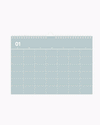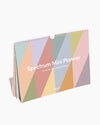
Journaling…yes, it’s putting pen to paper. However, have you also considered it may be a powerful tool that can positively impact mental health?
By starting a journaling habit, you can start a journey filled with self-discovery, enhancing self-awareness, and fostering personal growth. We’ll provide you with a comprehensive guide on how beginners can start their journaling practice and unlock its benefits.
What Are the Benefits of Journaling?
Daily reflection can easily contribute to our mental health. Journaling lets us explore our thoughts, emotions, and experiences on a deeper level. This may just lead to increased self-awareness. We all could benefit from understanding our inner workings a little more!
By regularly writing in a journal, we can also reflect on past experiences, learn from our mistakes, and gain insights into our behaviors and patterns. It’s a valuable tool for self-improvement in general — you’re only one step away from personal growth.
Through the simple act of writing, we can create a sense of mindfulness, improve our mental clarity, and boost our overall well-being. The benefits of journaling extend beyond the simple pages of a notebook. It has a positive impact on day-to-day life and encourages a journey of self-discovery and self-improvement.
How To Begin Journaling
We get it, journaling as a beginner can be tough! However, getting started can be simple. To start journaling effectively, consider the following tips:
- Embrace Imperfection: Overcome the fear of a blank page by letting yourself jot down thoughts without worrying about perfection. Remember, journaling is a personal practice…there’s no judgment in sight.
- Establish a Routine: Setting aside a specific time each day for journaling can help create a habit. Whether it's in the morning, during lunch break, or before bedtime, consistency is key.
- Start Small: Begin with short entries or bullet points if the thought of lengthy journaling is overwhelming. Gradually, you can expand your entries as you grow more comfortable with the process.
With these tips in mind, let’s start journaling!
1. Choose the Right Journal
There are many types of journals, and choosing the right one is important if you want to create a journaling habit. When selecting a journal, check out bullet journals, gratitude journals, and art journals. They each offer a unique format catering to different preferences.
Opt for a journal that aligns with your style and personality, whether it be a sleek, minimalist notebook or a colorful, artistic journal that ignites your creativity. For beginners seeking help, you may want to consider using guided journals equipped with prompts and structured layouts. They can serve as helpful tools for kickstarting your journaling journey.
2. Gather Supplies for Beginner Journaling
Gathering the right supplies can enhance your journaling experience and make the process more enjoyable.
Invest in a high-quality notebook that you find visually appealing. Whether it's a leather-bound journal or a colorful spiral notebook, choose one that sparks creativity.
Next, select pens that you enjoy writing with, such as fountain pens, gel pens, or markers. The right writing tool can make a huge difference in how you engage with your journal. Consider a personal touch by adding stickers, washi tape, or other decorative pieces. These accessories can make your journal visually appealing and may even inspire creativity!
If you prefer using your phone, you can even explore digital journaling apps or software that offer features like cloud syncing and multimedia integration.
3. Establish a Routine
To establish a consistent journaling habit, create a routine that suits your needs. Begin by setting a specific time of day that aligns with your schedule, whether it's in the morning to kickstart your day or in the evening to reflect on your experiences.
You may want to try connecting it with an existing habit in your daily routine, such as journaling after your morning coffee or before bedtime, to keep momentum high. The goal is to develop a journaling ritual that eases you into the practice — consider brewing a cup of tea, playing soothing music, or lighting a candle to set the mood!
4. Try Various Techniques for Beginners
Most importantly, find what works for you. Not every technique will suit everyone, so experiment a little!
Embrace stream-of-consciousness writing by writing continuously without filtering or editing your thoughts. This technique can help you tap into your subconscious. Who knows what you may be able to uncover here!
You can also try utilizing writing prompts to stimulate your creativity and inspire your journal entries. Prompts can range from reflective questions to imaginative scenarios, providing direction when you're unsure what to write about.
Or maybe free writing is for you! These are sessions where you write non-stop for a set period, focusing on expressing your thoughts without inhibitions. Free writing can help you overcome writer's block and access your authentic voice.
5. Overcome Beginner Challenges
Beginners often face challenges that may impede their progress. Try a few strategies to overcome these obstacles and maintain motivation…it’s essential for continued growth.
Consistency is key to developing a journaling routine. Start with achievable goals and gradually increase the frequency of your entries to build momentum. When encountering writer's block, consider changing your environment, taking breaks, or exploring alternate journaling techniques to reignite your creativity during periods of stagnation.
To stay motivated, seek inspiration from journaling prompts or online communities, and reflect on the positive impact journaling has on your mental well-being. Always acknowledge your progress and celebrate your growth along your journaling journey.
6. Expand Your Journaling Practice
As you advance in your journaling journey, there are opportunities to broaden your practice through more advanced techniques and personalized approaches.
Consider starting a dream journal dedicated to recording your dreams and exploring their meanings. Dream journals can provide some valuable insights into your subconscious thoughts and emotions.
You can also establish a personal journal as a safe space to express your deepest thoughts, emotions, and experiences freely, fostering introspection and self-discovery without constraints.
Integrate doodles, sketches, or collages into your journal entries for some added visual fun! Art journals introduce a visual aspect to your reflective writing. This can add a little depth to your journaling experience.
7. Personalize Your Journal
A little creativity and personalization in your journal can go a long way. Make the practice more engaging and reflective of your unique style:
- Decorative Touches: Use stickers, washi tape, and other decorative elements to embellish your journal entries and make them visually pop. There’s nothing better than a little customization to get the creative juices flowing!
- Experimenting with Formats: Try different formats, such as bullet journaling, where you can organize your thoughts in a structured manner, or free-form writing to encourage creativity and spontaneity.
- Reflective Writing: Engage in self-reflective writing by exploring your emotions, aspirations, and challenges. Let your journal be a safe space for personal growth!
Now, Let’s Start Journaling!
Journaling as a beginner is a rewarding experience that serves up some incredible benefits! By starting with simple techniques and gradually expanding your routine, you’re one step closer to adopting a habit that supports your mental wellness.
Embrace the journey of self-discovery, creativity, and growth that journaling facilitates. There is no right or wrong way to journal — find what works best for you and make it a meaningful part of your daily routine. As you begin this life-changing practice, embrace curiosity, openness, and a commitment to self-improvement.
Shop Poketo’s thoughtful collection of journals and notebooks. Don’t wait another day to embrace self-reflection!
Sources:
How to Start Journaling for Better Mental Health | Psychology Today
The Power of Journaling for Well-being: A Path to Self-Discovery and Healing | Duke Health
Strategies for Overcoming Writer’s Block | Psychology Today
The Power of Consistency: How Being Consistent Can Lead to Big Results | Kaizen Routine






































































